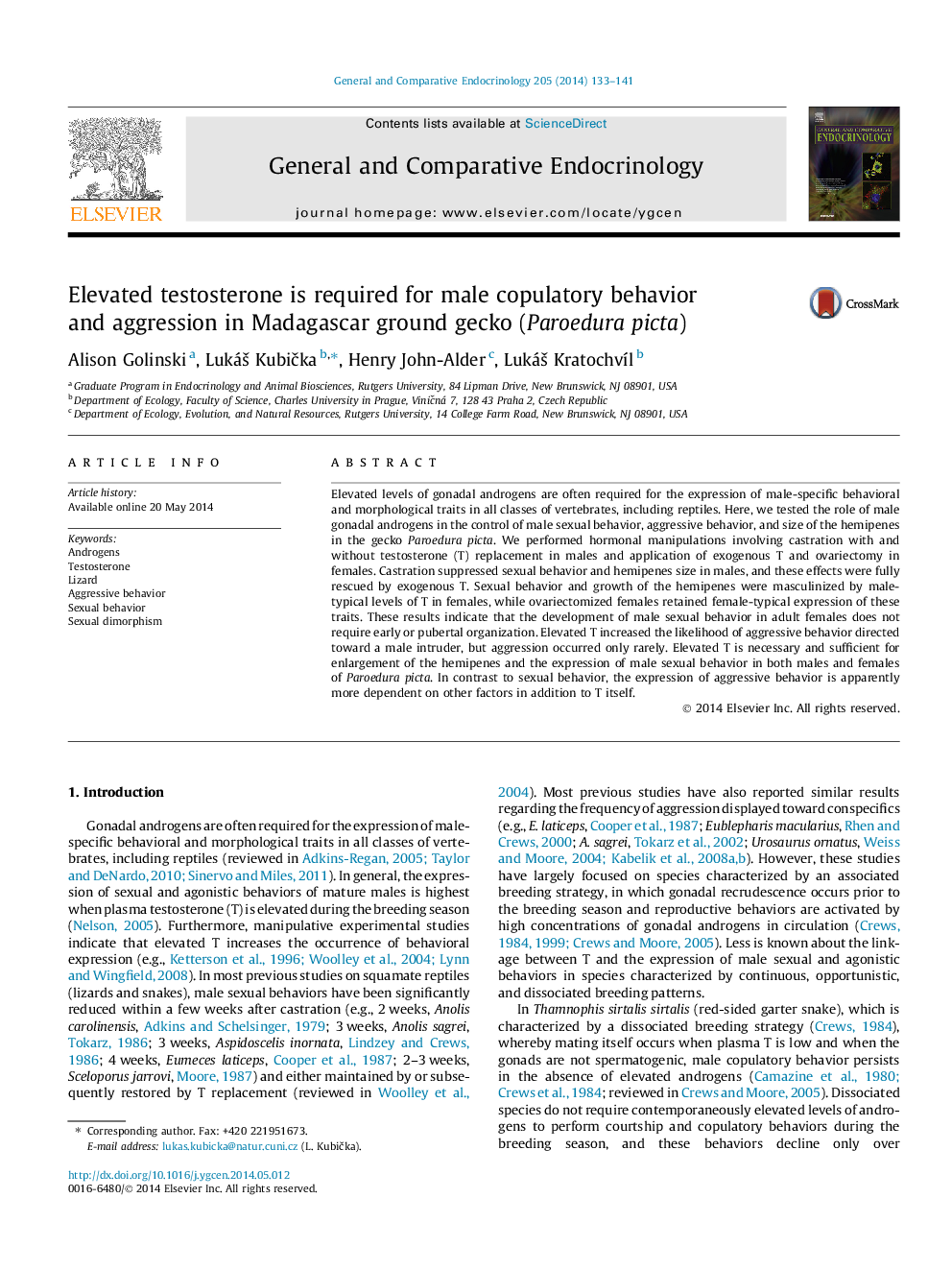| کد مقاله | کد نشریه | سال انتشار | مقاله انگلیسی | نسخه تمام متن |
|---|---|---|---|---|
| 5901118 | 1568900 | 2014 | 9 صفحه PDF | دانلود رایگان |

- Castration suppresses sexual behavior and hemipenes size in males of Paroedura picta.
- Testosterone masculinizes sexual behavior and hemipenes in males and females.
- Offensive aggression occurs rarely and only in individuals with elevated testosterone.
Elevated levels of gonadal androgens are often required for the expression of male-specific behavioral and morphological traits in all classes of vertebrates, including reptiles. Here, we tested the role of male gonadal androgens in the control of male sexual behavior, aggressive behavior, and size of the hemipenes in the gecko Paroedura picta. We performed hormonal manipulations involving castration with and without testosterone (T) replacement in males and application of exogenous T and ovariectomy in females. Castration suppressed sexual behavior and hemipenes size in males, and these effects were fully rescued by exogenous T. Sexual behavior and growth of the hemipenes were masculinized by male-typical levels of T in females, while ovariectomized females retained female-typical expression of these traits. These results indicate that the development of male sexual behavior in adult females does not require early or pubertal organization. Elevated T increased the likelihood of aggressive behavior directed toward a male intruder, but aggression occurred only rarely. Elevated T is necessary and sufficient for enlargement of the hemipenes and the expression of male sexual behavior in both males and females of Paroedura picta. In contrast to sexual behavior, the expression of aggressive behavior is apparently more dependent on other factors in addition to T itself.
Journal: General and Comparative Endocrinology - Volume 205, 1 September 2014, Pages 133-141